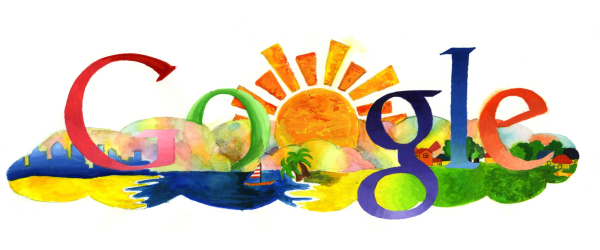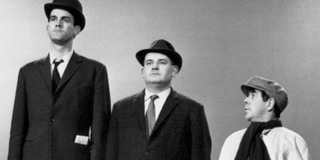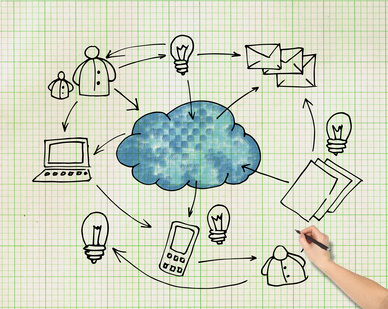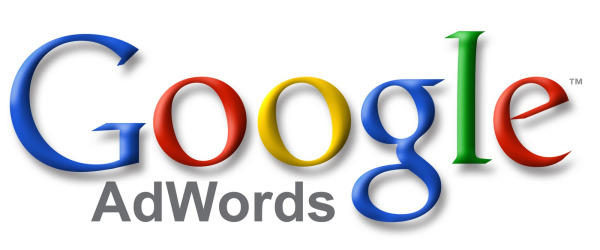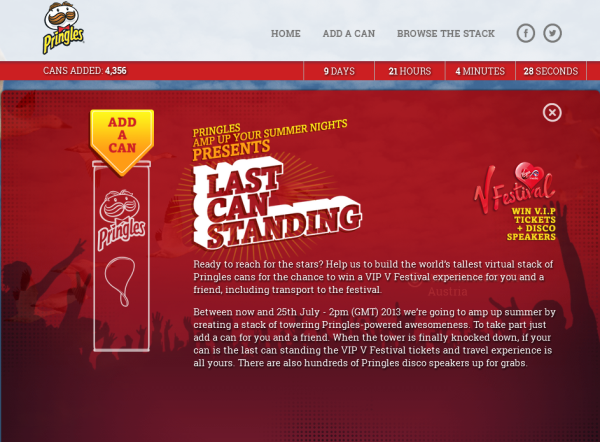How will the AdWords Campaigns Update affect marketing agencies?
By Danielle Stagg on 31 July 2013
Time for experiential marketing agencies to stand up and be counted
By Danielle Stagg on 30 July 2013
Experiential marketing has claimed its rightful place at the top table. This should be celebrated says Nick Adams, M.D of Experiential Marketing Agency of the Year, Sense London.
Just by looking at how certain industry awards are dominated by experiential campaigns, it’s clear to see how marketers from all sectors have embraced the once, relatively new, technique.
Whether as a marketing agency's lead discipline in an integrated plan, or vital supporting component, experiential can being applied at every key stage of a brand’s development.
Many positive characteristics have fuelled this growth, but two aspects are especially relevant in today’s trading conditions:
- The convergence of experiential with digital techniques is providing another means of ongoing consumer dialogue and further amplifying a live experience. This has in part, helped draw a line through the scepticism that experiential can’t reach the masses.
- The capability to be reactive, that is to say, getting impactful activities out to market in the shortest of lead times which in today’s trading environment has become increasingly important.
So all in all experiential marketing is in rude health and long may that continue.
But how? Will the steady growth in investment continue and how can we defend our position in a landscape which sees marketing agencies and marketers constantly bombarded with new and different consumer touch-points?
Education remains an ongoing priority and there’s still a real need to get brand owners to reappraise experiential’s role. All too often I hear about clients ignoring the most robust and impressive campaign results, in favour of a comfort factor provided by a more traditional, but less effective channel.
But a much broader challenge is how all experiential practitioners package our discipline in terms of what it can deliver, in an accessible way to brands and media planners alike, if it’s they who are recommending which channels will fulfil a client’s objectives.
Keeping it fresh
Let’s never lose the creativity and excitement of such a high energy and impactful discipline, but at the same time we must ensure we never trade on this alone and put tangible results at the forefront of how experiential is planned by marketing agencies and sold to clients.
Much like a catchy jingle doesn’t secure budget for a radio Ad, brand owners decision’s mustn’t be clouded by a desire to see their brand on the proverbial ‘live stage’, however bold, engaging and tempting the marketing agency’s presentation. I frequently meet or hear about brands excited about trying a new experiential strategy without fully understanding the commercial reasons for their decision. Tempting as it may be for agencies to spend the budget, long term growth of our sector has to come from agencies behaving with commercial responsibility and pragmatism in advising their clients.
Where next?
Take a look at digital marketing’s exponential rise and some parallels can be drawn. It’s frequently debated as to whether brand owners are investing in social for the right reasons, based on clear objectives and measured KPI’s or a simple desire to marginally increase their Facebook likes.
My own belief is that some social media investment is a result of the band wagon analogy but as the plethora of digital opportunities evolve, those succeeding long-term will be able to provide clear connections between consumer engagement online and hard, measurable commercial gains - offline.
Experiential marketing has to leverage its maturity and become more strategic in applying our trade, offering clients greater understanding of what a campaign will achieve and if and how this fits with brand challenges and objectives.
So from the experiential marketing agency perspective, there’s never been a more important time to scrutinise a brief and provide a quantifiable solution - that campaign X will drive Y incremental sales, increase key brand health scores by Y%, gain trial amongst X genuine new users, or whatever the hierarchy of objectives.
A beginner’s guide to marketing automation
By Danielle Stagg on 25 July 2013
Businesses that use marketing automation to nurture prospects are recording over a 450% increase in qualified leads, says Garry Davis of Digital Marketing Agency, Grow Online Marketing, specialists in Marketing Automation. Here he tells you all you need to know.
Marketing automation can bring a host of significant benefits to organisations keen to target their marketing more accurately – but too many companies don’t yet know about this exciting new technology.
What is the definition of marketing automation?
Marketing automation is a term for software that is used to capture the data of the people who interact with your brand online and then nurtures those leads until they are ready to be converted into sales.
The way marketing automation software works is to record the email addresses of everybody who fills out a form on your website and then by ‘tagging’ all their other activity, from the pages they look at on your website through to their engagement with your social media profiles. Using this technology, marketing automation software can build a more comprehensive picture than ever before of how people interact with your brand. It’s the next step that makes marketing automation software so exciting, however, because it sends follow-up content to those leads based on their individual habits.
For example: a travel agency sends an email to its database containing a pdf attachment of its latest brochure. Joe Smith is one of the recipients and clicks through to open the brochure. He’s interested in holidays in Greece, so he goes straight to that page. He has previously visited the travel agency’s Facebook page. The software has tracked all of this, and is able to send him automatic follow-up messages containing offers on holidays in Greece, and incentives to become a fan on Facebook. The travel agency is communicating with Joe based on his actions and preferences, thus achieving a unique balance between inbound and outbound marketing.
An update on... The Google Adwords Campaigns Update
By Danielle Stagg on 24 July 2013
Are you one of the advertising or marketing agencies whose Adwords dashboard has been cluttered with notifications of the impending Google update?
Perhaps some of the 6 million already upgraded legacy campaigns (equating to almost 75% of all active campaigns) belonged to your advertising or marketing agency.
How do you value the creativity of your marketing agency?
By Sydney Fleming-Gale on 23 July 2013
The marketing world has been shaken by a controversial debate with one question at the epicentre: Do marketing agencies place too much emphasis on creativity and not enough on achieving return on investment? According to 78% of CEOs, they don't...
This comes as an aftermath from a report published by Fournaise Marketing Group stating that a majority of Chief Executives feel marketing agencies are too “inward looking”. The report went onto explain this was because there was little or no evidence to support agency claims that creativity in their marketing strategies guaranteed an improvement in ROI.
Since the report was published on July 11th there has been a backlash response from marketing agencies and other influential bodies in the industry slamming the claims. Their group disapproval is proof that not only marketing agencies but also CEOs believe that creativity and ROI is not an either or decision.
Truly creative and original concepts have little or no backing research to support the strategy pitch due to the experimental nature of the ideas. It is this detail that rings alarm bells for CEOs who are used to being reassured their investment will be well spent with a presentation of hard data and evidence to ensure an airtight profitable strategy.
Marketing agencies take note: Experiential marketing by Pringles
By Danielle Stagg on 18 July 2013
As we march steadily forward into the digital age, the brands that are destined to survive are the ones that can embrace digital and use it to connect with consumers emotionally, says James Fuller of intergrated marketing agency, whynot!.
The popular path for digital at the moment seems to lie in experiential marketing, that is to say creating a memorable experience for consumers through interactive activities that ring an emotional chord. For Pringles, the latest adopter of this strategy, it’s about the fun and humorous connection with fans and with this new campaign- and we must admit they’re doing it rather well.
Making good use of digital yet again with their latest campaign ‘Last Can Standing’, the Pringles marketing team have had come up with giving their consumers the chance to create the world’s tallest virtual stack of Pringles.
Online Display Advertising More Effective Than Paid Search?
By Danielle Stagg on 16 July 2013
Ask any digital marketer or marketing agency bod which discipline is first on the budget sheet, they're bound to answer 'search'. It stands to reason - although companies spend time, effort and money trying to tightly define their target audiences and deliver relevant messages at relevant times, a search audience is self-selecting.
Your ad is only served to those interested in your product or service as identified by the search phrase they enter into Google or Bing. By definition you've served the ad to the right audience at the right time.
Integrated vs specialist marketing agencies: who wore it better?
By Danielle Stagg on 12 July 2013
Integrated Vs specialist: its the marketing agency debate that colours FindGood towers many an afternoon – but what should you base your marketing agency search and selection on and what do you need to consider?
There are many pros and cons for each side and naturally, the scales are constantly swaying.
What makes a good marketing agency?
By Danielle Stagg on 10 July 2013
Just about every day, someone asks us how we judge a marketing agency's relative quality and appropriateness to client briefs.
Is decoupling advertising production right for you?
By Danielle Stagg on 4 July 2013
This blog was penned by the team at Gutenberg, an international advertising production business specialising in decoupling advertising production
Is decoupling advertising production right for you?
There are a number of factors which influence whether decoupling production is right for your business. Before you embark on decoupling advertising production there are a number of factors to take into account. If you fall into one of the following structures you can almost certainly benefit.

